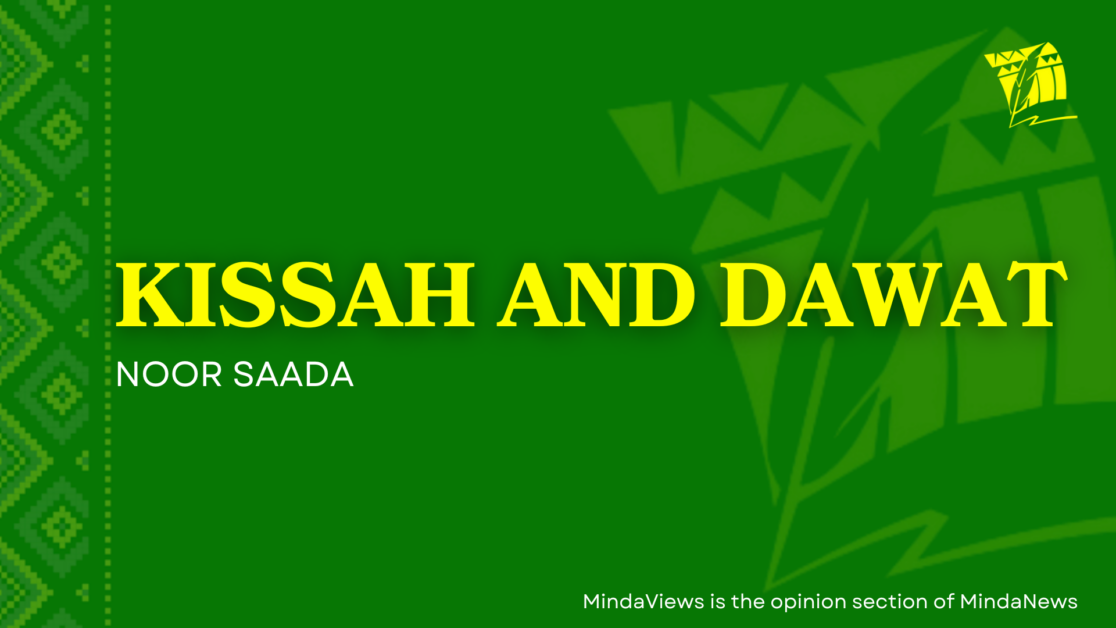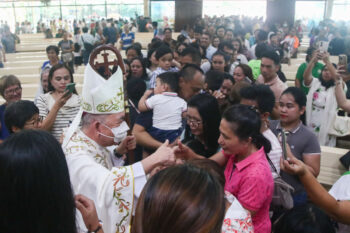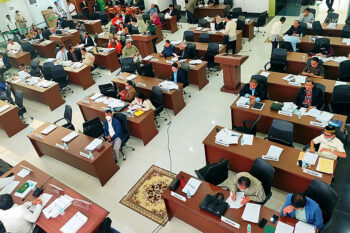
DAVAO CITY (MindaNews / 20 August) – The city is in a festive mood for the annual Kadayawan celebration. The exotic fruits that the city and the region are known for are in abundant supply. Commercial establishments are offering promotions and discounts. Entertainment options are plentiful, ranging from traditional to modern, passive movie watching to active sporting events. There is even a national book fair coinciding with the city’s festival. If there is one government-orchestrated activity that seems to truly reflect the people’s mood and respond to popular demand, it is activities like this annual festival.
I wonder about the various ways in which we can engage with and respond to the clamor of the people. These ways should authentically reflect the essence of ra’ayat (people) in a democracy. We seek approaches that imbue people’s participation with meaningful significance, making it a standard process rather than a sporadic occurrence. How can we consistently involve citizens in a sustainable manner? Meaningfully? Ways that make people’s participation as a normative process rather than an exception. How can we engage the citizens sustainably?
While discussing the subject with Dr. Howard Maniego, a development management consultant, he highlights a significant point. He acknowledges the merit of people’s participation and representation, but he emphasizes that their impact becomes truly noteworthy when their influence permeates the government’s policy formulation, program development, and overarching vision, mission, and priorities. After all, what purpose does their presence serve if their voices remain unheard? Is it not more effective to provide them with a platform to speak, rather than merely allowing their ideas to go unnoticed?
In a democracy, the collective voice of the people plays a pivotal role in shaping the course of governance. However, the question arises: How should we acknowledge and value this voice in the interlude between elections? At the core of this inquiry lies the concept of public opinion – a dynamic force that encapsulates the perspectives, concerns, and aspirations of the citizens. But where does public opinion reside within the realm of public discourse, and is its mere articulation sufficient? Furthermore, does there exist a well-defined policy dictating the treatment of public opinion?
I tried to dip into my cultural pouch and begin to understand public opinion from my own heritage. Is there a word or for public opinion? Two words come to mind and these are common across the Tausug, Sinama and Yakan languages. The first word is ‘ra’ayat’ referring to the people collectively. The second word is ‘pikil,’ meaning, a thought, idea, or opinion. Together as a compound word, ‘pikil-ra’ayat’ can reflect the people’s opinion, akin to the Filipino compound word ‘kurong-bayan.’
In any democratic system, including the one in the BARMM, pikil-ra’ayat plays a crucial role as it refers to the collective views, beliefs, attitudes, and sentiments of the general population, and is a crucial factor in shaping government policies, decision-making processes, and the overall direction of a region. The question at hand is: to what extent does public opinion shape public policies, and conversely, how much do public policies influence public opinion?
Have you ever noticed that individuals who actively voice their concerns, whether individually or as members of non-organized groups, often encounter questions and statements like, ‘Bakit ka nakikialam sa gobyerno?’ (Why are you meddling in government affairs?) or ‘Kung anu-ano ang pinagsasabi mo, bakit sino ka ba?’ (Why are you saying all these things, who do you think you are?) Or, perhaps even worse, ‘Pinapakinggan ka ba?’ (Are you even being listened to?) What do these statements truly reflect?
The doubts cast on these individuals are indicative of our political immaturity and exclusion. Despite being Asia’s first republic and the first to embrace democracy as an American heritage, the level of public engagement and the appreciation for pikil ra’ayat are insufficient for the citizens to truly impact the core concept of sovereignty.
How can we initiate this process of valuing? Undoubtedly, pikil ra’ayat plays a pivotal role in wielding political influence and shaping public decision-making. These processes are currently and significantly steered by both traditional and contemporary elites and interest groups. How can we make sure the ‘pulse of the region’ can begin to serve as a counterpoint to their interests?
More importantly, how can we make sure pikil ra’ayat truly reflects societal trends, ethical standpoints, and concerns about policy matters. While elections offer a definitive channel for ra’ayat’s voice to be heard through ballots, maintaining a continuous and meaningful engagement with pikil ra’ayat is equally important. Yet, the relationship between pikil ra’ayat and public policies is not always straightforward. Complex factors such as economic constraints, legal considerations, and the expertise of policymakers can temper the direct influence of public opinion on policy formation.
Recognizing pikil ra’ayat is crucial for the success of the region’s governance, policies, and overall development. As the late US President and statesman Franklin D. Roosevelt reminded us, a government cannot be better than the public opinion that sustains it.
(MindaViews is the opinion section of MindaNews. Noor Saada is a Tausug of mixed ancestry—born in Jolo, Sulu, grew up in Tawi-Tawi, studied in Zamboanga and worked in Davao, Makati and Cotabato. He is a development worker and peace advocate, former Assistant Regional Secretary of the Department of Education in the Autonomous Region in Muslim Mindanao, currently working as an independent consultant and is a member of an insider-mediation group that aims to promote intra-Moro dialogue.)







